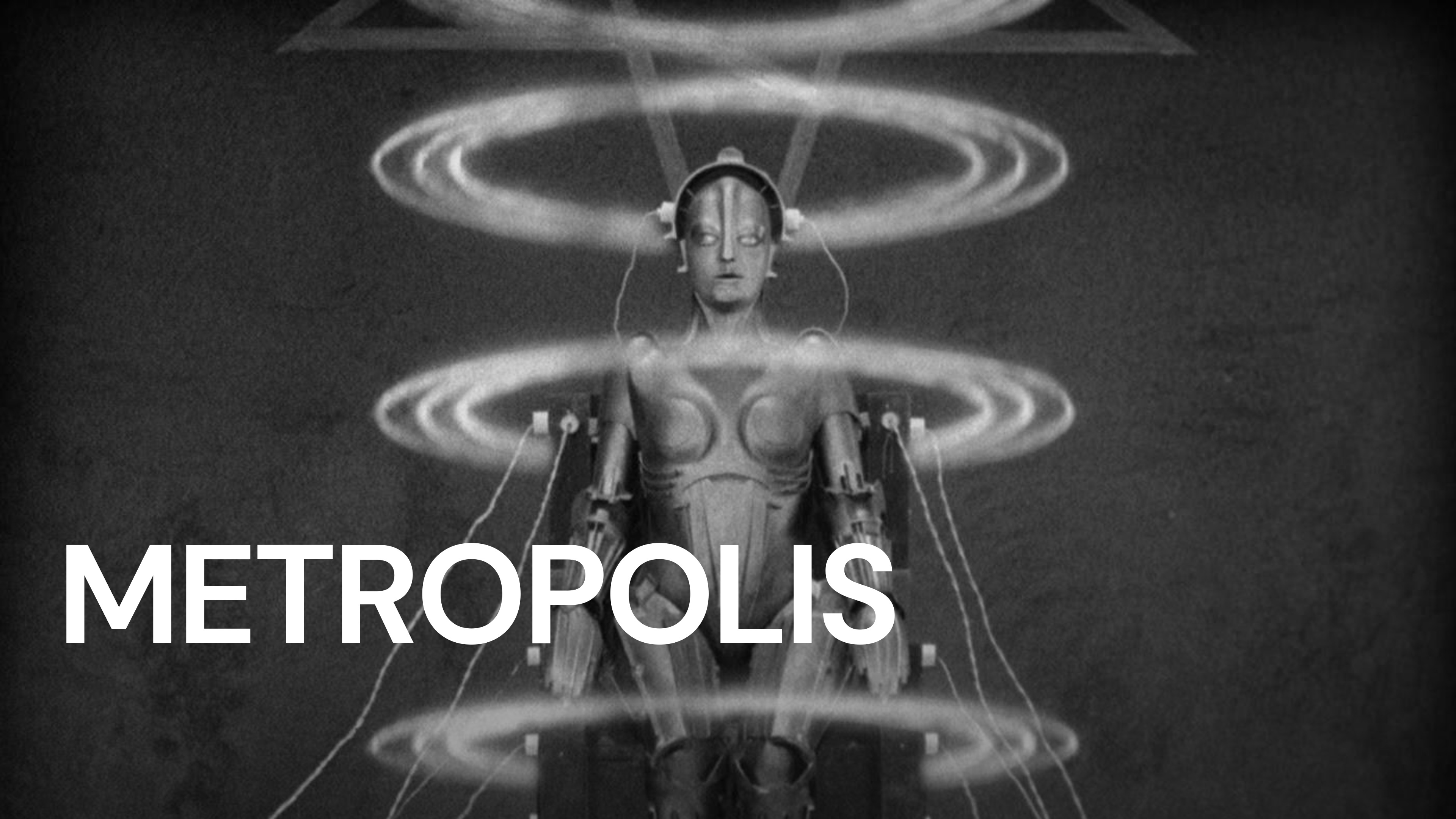
Metropolis is a groundbreaking film that is hailed as a seminal work in the science fiction genre. Directed by Fritz Lang, this German expressionist masterpiece was released in 1927 and continues to captivate audiences with its stunning visuals and thought-provoking themes. Set in a futuristic dystopian city, the film tells the story of a stark class divide between the wealthy ruling class and the overworked and oppressed workers who toil in the city’s underground. With its elaborate sets, innovative special effects, and compelling narrative, Metropolis has left an indelible mark on cinema and has inspired countless filmmakers and artists over the years. In this article, we will uncover 32 fascinating facts about the movie Metropolis that will give you a deeper appreciation for this cinematic gem. So, fasten your seat belts and get ready to dive into the fascinating world of Metropolis!
Key Takeaways:
- “Metropolis” is a groundbreaking German silent film set in a dystopian future, exploring themes of class struggle and inequality. Its restored version was discovered in Argentina, and it continues to influence popular culture.
- The film’s iconic visuals and themes of social inequality and unity have left a lasting impact on cinema and popular culture, resonating with audiences even after 90 years. Its legacy as a cinematic masterpiece is undeniable.
Metropolis is a German expressionist science-fiction film
Considered a groundbreaking work of cinema, Metropolis was directed by Fritz Lang and released in It is widely regarded as a masterpiece of the silent era.
The film was set in a dystopian future
Set in the year 2026, Metropolis depicted a socially divided city where the wealthy elites lived in luxurious skyscrapers while the working class dwelled underground in squalor.
It was one of the most expensive films of its time
With a budget of 5 million Reichsmarks, Metropolis was the most expensive film produced in Europe at that time. The large-scale sets and elaborate special effects contributed to its high production costs.
The film’s iconic robot character, Maria, was portrayed by actress Brigitte Helm
Brigitte Helm’s performance as the dual characters of the virtuous Maria and her evil robotic doppelgänger became an enduring symbol of the film. Helm’s portrayal showcased her versatility as an actress.
The story was inspired by the director’s trip to New York City
Fritz Lang was inspired to create the futuristic cityscape of Metropolis after visiting New York City. The towering buildings and bustling streets left a lasting impression on him.
The film explores themes of class struggle and inequality
Metropolis delves into the tensions between the ruling class and the oppressed working class. It highlights the injustices faced by the workers and portrays a hopeful message of unity and reconciliation.
The film’s stunning visual effects were achieved through pioneering techniques
The innovative visual effects in Metropolis were created using techniques such as miniatures, matte paintings, and back projection. These groundbreaking methods paved the way for future advancements in filmmaking.
The original version of the film was nearly two and a half hours long
When Metropolis was first released, it had a runtime of 153 minutes. However, the film was heavily edited and censored after its initial premiere, resulting in several versions with varying lengths.
The restored version of the film was discovered in Argentina
In 2008, a print of the original uncut version of Metropolis was discovered in Buenos Aires, Argentina. This restored version, featuring previously lost footage, provides a more complete viewing experience.
The film received mixed reviews upon its release
While Metropolis attracted attention for its grand scale and visual effects, it received mixed reviews upon its initial release. Some critics found the story and characterizations lacking, while others praised its technical achievements.
The film’s futuristic cityscape became an iconic visual reference
The towering skyscrapers and intricate urban design of Metropolis have influenced countless films and artworks. Its depiction of a futuristic cityscape continues to inspire filmmakers and artists today.
The film’s score was composed by Gottfried Huppertz
Gottfried Huppertz created a sweeping and atmospheric score for Metropolis using a full orchestra. The music enhances the emotional impact of the film’s key moments and adds to its overall cinematic experience.
Queen was inspired by the film for their music video “Radio Ga Ga”
The iconic British rock band Queen drew inspiration from Metropolis for their music video “Radio Ga Ga.” The video incorporated scenes and imagery reminiscent of the film’s dystopian world.
The film’s production faced numerous challenges
From technical difficulties to conflicts between the director and the studio, the production of Metropolis was plagued by various challenges. Despite these obstacles, the film eventually found its rightful place in cinema history.
The film’s themes resonate with contemporary societal issues
Even though Metropolis was released over 90 years ago, its themes of social inequality and the struggle for justice still resonate in today’s world. The film’s enduring relevance is a testament to its timeless message.
The film’s influence can be seen in later sci-fi films
Many science fiction films that followed were influenced by Metropolis. Its visual style and exploration of futuristic themes have left a lasting impact on the genre, shaping the way for future sci-fi classics.
The character of Rotwang was named after a real-life scientist
The mad scientist character, Rotwang, was named after the German mechanical engineer and inventor, Fritz Albert Lipmann von Rotwang. This nod to a real-life scientist adds an interesting layer of depth to the character.
The film had a profound effect on the director’s personal life
After completing Metropolis, Fritz Lang’s marriage with Thea von Harbou, who wrote the screenplay for the film, ended in divorce. Despite their personal differences, the creative collaboration between the two resulted in a masterpiece.
The futuristic city sets were built on a massive scale
To create the immersive world of Metropolis, immense sets were constructed with meticulous attention to detail. The city sets were grand in scale and added to the film’s epic visual spectacle.
The film was a commercial failure upon its release
Despite its artistic achievements, Metropolis did not fare well at the box office initially. Its high production costs and mixed critical reception contributed to its commercial failure.
The hand signals used in the film became iconic
The hand signals used by the workers in Metropolis to display their unity and solidarity became iconic symbols associated with the film. These gestures have since been referenced and replicated in various forms of media.
The film was heavily influenced by German Expressionism
The visual style and dark, moody atmosphere of Metropolis were heavily influenced by the German Expressionist movement. This cinematic style emphasizes exaggerated shapes, shadowy lighting, and distorted perspectives.
The film’s themes reflect the director’s own political views
Fritz Lang incorporated his own political beliefs into the story of Metropolis. The film critiques the mechanization and dehumanization of modern society and advocates for social justice and compassion.
The film was restored to its original length in 2010
Thanks to the discovery of the missing footage in Argentina, Metropolis was able to be restored to its original length in This restored version allows audiences to experience the film as intended by the director.
The film’s influence extended beyond cinema
Not only did Metropolis inspire filmmakers, but it also influenced other art forms such as architecture, fashion, and literature. Its iconic visuals and themes continue to permeate popular culture.
The film’s futuristic technology was ahead of its time
Metropolis showcased advanced technology for its time, including flying cars, video communication devices, and robotic characters. These futuristic elements added to the film’s sense of wonder and awe.
The film’s restoration received critical acclaim
The restored version of Metropolis was met with widespread critical acclaim. Critics and audiences praised the film for its stunning visuals, compelling themes, and improved narrative coherence.
The film has been referenced in various forms of media
Over the years, Metropolis has been referenced and homaged in numerous films, television shows, and music videos. Its influence on popular culture is a testament to its lasting impact.
The film’s special effects were achieved without the use of CGI
Given that Metropolis was released in 1927, the film’s impressive visual effects were accomplished without the use of computer-generated imagery. This further attests to the technical ingenuity of the filmmakers.
The film’s message promotes unity over division
At its core, Metropolis advocates for unity and understanding, transcending the divisions created by social class. The film’s finale delivers a powerful message of hope, emphasizing the importance of collective action.
The film’s timeless themes continue to resonate with audiences
Despite being released over 90 years ago, Metropolis remains relevant today. Its exploration of social inequality, the dangers of unchecked technology, and the power of unity still resonate with audiences of all ages.
The film’s legacy has only grown stronger over time
Metropolis is widely regarded as one of the greatest films ever made and has achieved a legendary status in the history of cinema. Its impact on filmmaking and its enduring cultural significance cannot be overstated.
Conclusion
In conclusion, “Metropolis” is truly a masterpiece that has left a significant impact on the world of cinema. From its groundbreaking visual effects to its thought-provoking themes, this film has stood the test of time and continues to captivate audiences today. Its influence can be seen in countless science fiction and dystopian works that followed, making it a true icon of the genre.With its stunning visuals, innovative storytelling, and powerful social commentary, “Metropolis” remains a must-watch for cinema enthusiasts and anyone interested in exploring the depths of human nature and the consequences of societal divisions. Whether you’re a fan of classic movies or a newcomer to the world of film, “Metropolis” is an experience that shouldn’t be missed.
FAQs
1. When was “Metropolis” released?
Metropolis” was originally released on January 10, 1927.
2. Who directed “Metropolis”?
The film was directed by the legendary German filmmaker Fritz Lang.
3. Is “Metropolis” a silent film?
Yes, “Metropolis” is primarily a silent film, but it does feature intertitles for the dialogue and narrative explanations.
4. How long is the runtime of “Metropolis”?
The original cut of the film had a runtime of approximately 153 minutes, but various edits and versions exist with different durations.
5. Was “Metropolis” a box office success?
No, “Metropolis” was a commercial failure upon its initial release. However, it has gained immense critical acclaim and has since become recognized as one of the greatest films of all time.
6. Are there any restored versions of the film available?
Yes, efforts have been made to restore “Metropolis” to its original glory. The most notable restoration was completed in 2010, which included the rediscovery of missing footage and the addition of a newly composed score.
7. What is the significance of “Metropolis” in film history?
Metropolis” is considered a groundbreaking film due to its innovative special effects, set designs, and storytelling techniques. It has influenced countless filmmakers and has become a timeless classic in cinema history.
From the groundbreaking visuals of Metropolis to the captivating stories of silent movie stars, film industry has always pushed boundaries. Discover more about the world of cinema through fascinating facts about international film festivals like Helsinki's, or delve into the intricacies of movie production with a closer look at classics such as Fantastic Voyage. Whether you're a film buff or simply curious, there's always something new to learn and appreciate in the ever-evolving landscape of motion pictures.
Was this page helpful?
Our commitment to delivering trustworthy and engaging content is at the heart of what we do. Each fact on our site is contributed by real users like you, bringing a wealth of diverse insights and information. To ensure the highest standards of accuracy and reliability, our dedicated editors meticulously review each submission. This process guarantees that the facts we share are not only fascinating but also credible. Trust in our commitment to quality and authenticity as you explore and learn with us.


